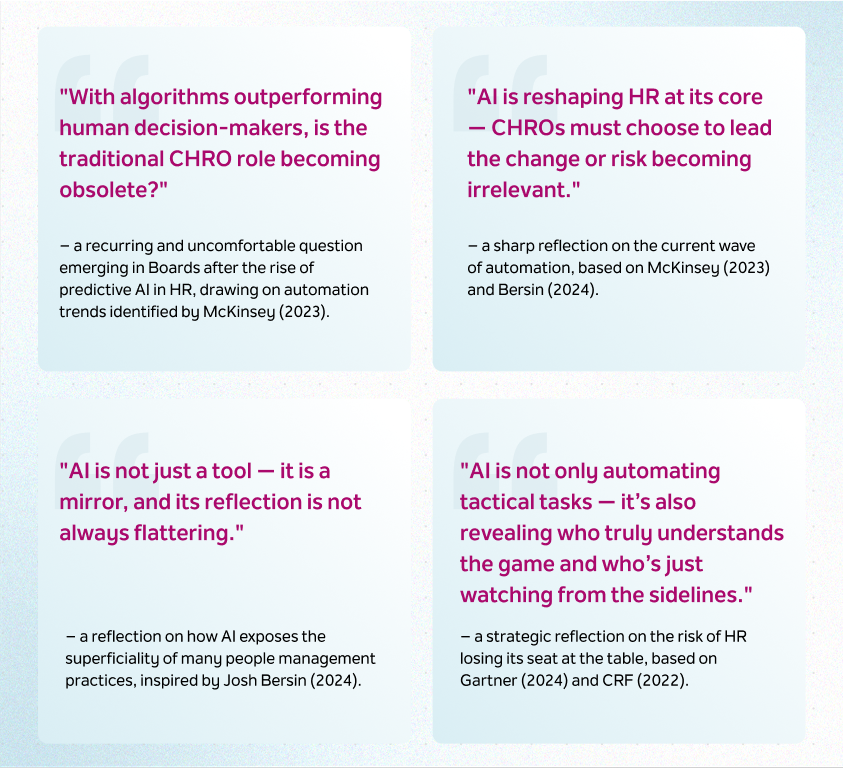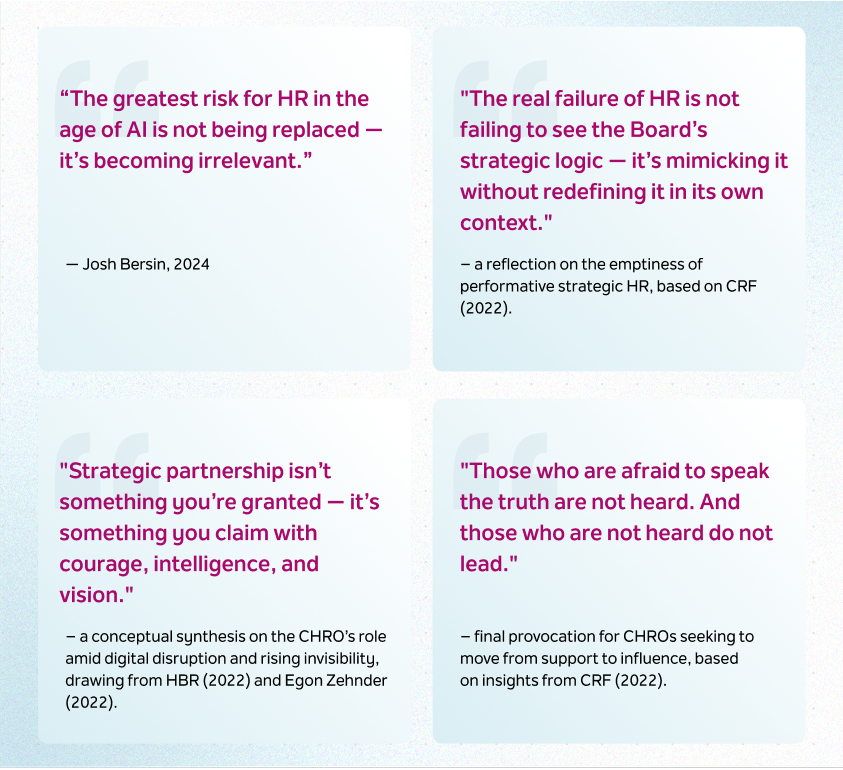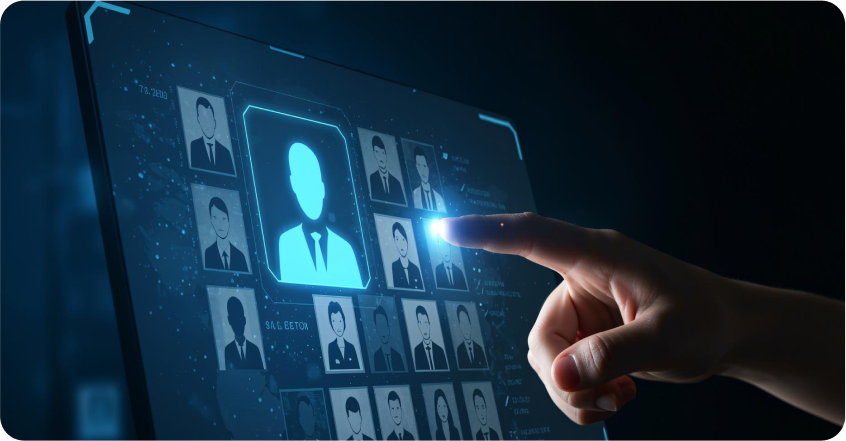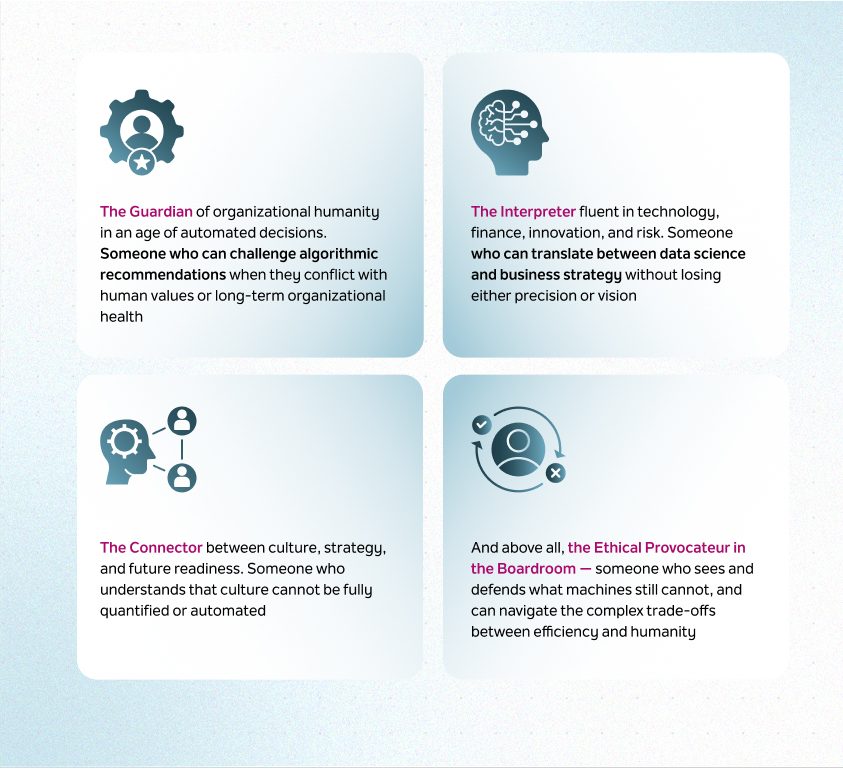Introduction – AI, HR, AND the Courage to Begin Anew: Provocations for a New Era


Boards Have Algorithms. What They Lack Is Someone Who Understands People.
For years, Human Resources leaders have been asking for a seat at the table. Artificial Intelligence seemed like the ultimate passport: the promise of more accurate decisions, more efficient processes, and less bias captivated HR leaders across the world. But as McKinsey (2023) warns, a different reality is emerging: AI is not empowering HR — it is exposing its vulnerabilities.
The statistics are sobering. According to Deloitte’s 2024 Global Human Capital Trends report, 68% of organizations now use AI in at least one core HR function, yet only 31% of CHROs feel confident in their ability to govern these systems.
AI-driven solutions are increasingly taking over core HR tasks: CV screening, structured interviews, behavioral profiling, even succession modelling. In many cases, they do so faster, with fewer biases, and at lower cost. The disruption is not theoretical. It’s real — and inevitable.
The consequence is as invisible as it is unsettling: AI is redefining the very core of the HR function. It does not merely automate tasks — it redefines what matters, exposes gaps, and forces Chief Human Resources Officers (CHROs) to make a choice: lead the transformation, or be left behind by it.
Josh Bersin (2024) puts it bluntly: “AI can be an ally — but it will not be indulgent.”
AI tools are already making decisions more rationally and with less bias than many poorly designed human processes. What was expected to be HR’s strategic breakthrough has become an uncomfortable mirror. This has created growing discomfort among executives and board members
If we already have algorithms that decide better, faster, and cheaper... do we still need a CHRO in its current form?

The provocation is out there. And it’s urgent.
Too many HR leaders still operate in transactional mode. When they try to appear strategic, they wrap themselves in technical jargon, replicate frameworks without interpretive courage, and hide behind the language of data — without truly mastering it.
Harvard Law School Forum is direct:
“HR’s failure is not in recognizing the demands of strategy, finance and governance — but in replicating them without reinterpreting them.”
And AI only sharpens the dilemma. A CHRO who deploys AI without understanding it — in technical, ethical, and cultural terms — becomes captive to vendors, dashboards, and off-the-shelf solutions. They lose their strategic voice. Worse — they lose discernment.
In this context, a subtle but devastating phenomenon is emerging: the silent dismantling of human intelligence in organizations.
As the World Economic Forum (2023) points out, HR functions are becoming leaner and more operational, dashboards are becoming more sophisticated yet leave no room for critical reflection, and human decisions are being automated without meaningful ethical debate.
The roles that require active listening, ethical judgement, contextual sensitivity and critical thinking are being sidelined — or outsourced. And AI is accelerating this shift with cold, impersonal efficiency.
The greatest risk for HR in the age of AI is not being replaced. It is becoming irrelevant.
This leads us to an unavoidable question:
What kind of CHRO does the Board really need?

The Harvard Business Review (2025) offers a clear answer: the CHRO of the future must be capable of identifying invisible risks — ethical, cultural, reputational — navigating algorithmic dilemmas with critical insight, and translating organizational culture into competitive advantage. This demands more than technical skill or process know-how. It requires intellectual presence, moral courage, and systems thinking.
Boards already have algorithms. What they lack is someone who understands human nuance, ethical contradictions, cultural noise, and the unquantifiable. They lack someone who understands people.
This new CHRO must embrace a set of roles that have been overlooked for far too long:

As the poet Antonio Machado wrote:
“Traveller, there is no path. The path is made by walking.” But this path demands action.
The CHRO can no longer wait to be invited to the table — they must claim their seat with authority, vision, and responsibility.
The CHRO’s transition to the Board is not a technical one. It is existential. Knowing people is not enough. One must understand systems, governance codes, regulatory risks, and the ethics of algorithms. One must think like a board member.
This requires a shift in posture, language, and ambition. Yes, it requires AI literacy — but also a grasp of its cultural logic. It demands the intellectual courage to say “no” to algorithmic recommendations when human judgment suggests a different path.
As MIT Sloan Management Review (2025) highlights, “data-driven culture starts at the top”. HR cannot afford to be left out of this conversation — or this construction. The choice is stark: evolve into strategic interpreters of the human-algorithm interface, or become administrative managers of systems they don’t understand.
Annotations
-
- McKinsey & Company (2023). The State of AI in 2023.
https://www.mckinsey.com/capabilities/quantumblack/our-insights/the-state-of-ai-in-2023-generative-ais-breakout-year - Deloitte (2024). Global Human Capital Trends Report.
https://www2.deloitte.com/us/en/insights/focus/human-capital-trends.html - Josh Bersin (2024). Understanding AI in HR.
https://joshbersin.com/understanding-ai-in-hr/ - Harvard Law School Forum (2025). The Role of the CHRO in the Boardroom.
https://corpgov.law.harvard.edu/2025/05/08/the-evolving-role-of-the-chro-in-the-boardroom/ - World Economic Forum (2023). Future of Jobs Report.
https://www.weforum.org/reports/the-future-of-jobs-report-2023 - Harvard Business Review (2023). Boards Want CHROs Who Can See Around Corners.
https://hbr.org - MIT Sloan Management Review (2023). Building a Data-Driven Culture: Four Key Elements.
https://sloanreview.mit.edu/article/building-a-data-driven-culture-four-key-elements/
- McKinsey & Company (2023). The State of AI in 2023.



